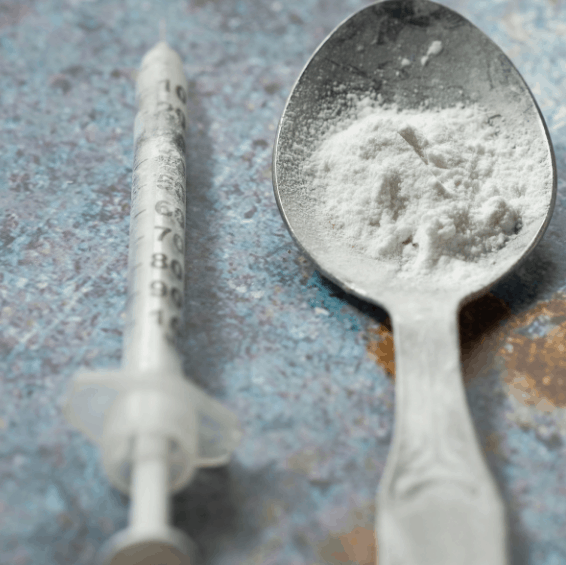Heroin abuse is always dangerous for an individual consuming heroin. However, heroin use during pregnancy heroin can also put a fetus at risk for several health and wellness risks, including neonatal abstinence syndrome. No one should ever abuse an illicit drug, like heroin, while pregnant, especially without understanding the potential but extremely serious dangers.
What is Heroin?
Heroin is an incredibly potent and dangerously addictive depressant drug. The main ingredient in it is opium, a natural substance that can be obtained from specific varieties of poppy plants. Most often, heroin is an off-white powder, but it can also be transformed into a sticky, black tar known as black tar heroin.
When consumed, heroin affects an individual in multiple ways. The opium attaches itself to pain receptors, blocking signals sent between the brain and the body. This provides a person with immense pain relief. However, heroin is also a depressant, so it will slow functions in the brain as well as the body. This typically creates a numbing sensation, which can be felt throughout the entire body.

Heroin Abuse
Heroin is an illegal substance in the United States and much of the rest of the world. This means that all heroin consumption is drug abuse. However, that does not mean that all heroin abuse is due to an addiction. Despite what many believe, addiction does not develop after one use or overnight. However, that does not make it safe to abuse heroin – not even once. Staying as far away from heroin as possible is one of the best ways to avoid heroin abuse and heroin addiction.
Consequences of Heroin Abuse for the User
Heroin abuse often comes with a variety of consequences for a user. Consuming the substance can lead to negative impacts on a person’s relationships, hobbies, finances, occupation, education, and more. Some of the most detrimental effects of heroin abuse occur in the user’s body. The substance can be the cause of several health risks, including higher risks for diseases, mental health problems, hypoxia, overdose, and death.
Dangers of Heroin Abuse During Pregnancy
As dangerous as heroin abuse is for an individual, heroin abuse can be even more dangerous for a pregnant woman and her fetus. These dangers can include engaging in risky behaviors in order to obtain heroin, getting into legal trouble as a result of heroin abuse, and so much more. Yet, some of the greatest dangers of heroin abuse can be passed on to a growing fetus during pregnancy.
When consumed, heroin will make its way throughout a person’s body. For a pregnant woman, heroin will pass across the placenta to the fetus. This can lead to several consequences, including respiratory distress, disruption of a fetus’ physical and cognitive development, preterm labor, preeclampsia, placenta previa, and even a miscarriage.

Sadly, the full effects on a newborn whose mother abused heroin while pregnant are not known to us. Researchers have yet to determine all of the long-term impacts the substance may or may not have had on a person while in the womb. More research must be done in order to determine every effect, but one effect, in particular, is known. Being born from a mother who abused heroin while pregnant does make the newborn more likely to develop an addiction to opioids or other substances later in life.
Neonatal Abstinence Syndrome (NAS)
The most common side effect of heroin abuse during pregnancy is neonatal abstinence syndrome (NAS). This condition occurs when a baby is born with a dependence on a drug such as heroin. According to data from the National Institute on Drug Abuse, in the United States, a baby was born suffering from opioid withdrawal every 15 minutes from 2004 to 2014. Almost always, babies born with NAS will be required to stay in the hospital for about two weeks longer than other newborns.
Signs of NAS
Knowing whether a baby is born with neonatal abstinence syndrome can be difficult. In general, NAS develops a few days after a baby is born. Some of the signs that a newborn has developed NAS include:
- Restlessness
- Irritability
- Trouble feeding
- Difficulty breathing
- Vomiting
- Diarrhea
- Fever
- Seizures
- Slower weight gain
Treating NAS
Babies suffering from neonatal abstinence syndrome typically require treatment with medications such as morphine. Like heroin, morphine is an opioid. Doctors will treat newborns with NAS with morphine in order to minimize the effects of opioid withdrawals. Newborns are not equipped to handle withdrawals, so instead of cutting them off from opioids entirely, doctors will treat them with an opioid like morphine and slowly lower the dosage until the newborn is able to function properly without being dependent on opioids.
Treating Heroin Addiction During Pregnancy
One of the most effective ways to avoid a newborn suffering from neonatal abstinence syndrome is to treat heroin addiction before or even during pregnancy. However, much like treating babies with NAS, expectant mothers should never suddenly quit opioids. The physical and mental stress that opioid withdrawals can put on a mother’s body can have unintended consequences on a growing fetus. In fact, opioid withdrawal while pregnant can lead to stillbirth, preterm labor, or even a miscarriage.
In order to treat heroin abuse or addiction during pregnancy, an expectant mother must be treated much like a baby with neonatal abstinence syndrome is treated. Instead of cutting off opioids entirely, a pregnant mother should administer or be administered smaller doses of opioids to minimize the symptoms of withdrawal. In doing so, they can be slowly weaned off the substance while avoiding many of the dangerous effects heroin abuse and opioid withdrawals can have on a fetus.
Searching for Effective Heroin Abuse Treatment?
If you or a loved one is searching for heroin abuse treatment to become sober and avoid neonatal abstinence syndrome, help is available in your area today! At Knoxville Recovery Center, our team of addiction experts and medical professionals offer numerous treatments and therapies to help our patients overcome addiction and substance abuse issues. Contact us for more information!








